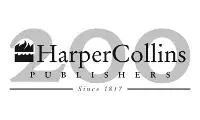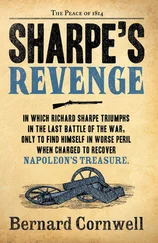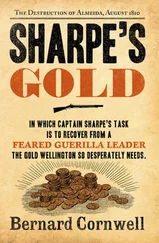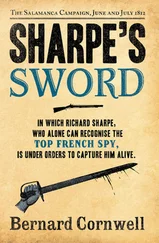SHARPE’S
WATERLOO
Richard Sharpe and the Waterloo Campaign, 15 June to 18 June 1815
BERNARD CORNWELL
 Copyright
Copyright
This novel is a work of fiction. The incidents and some of the characters portrayed in it, while based on real events and figures, are the work of the author’s imagination.
HarperCollins Publishers Ltd.
1 London Bridge Street
London SE1 9GF
www.harpercollins.co.uk
First published by HarperCollins Publishers 1990
Copyright © Rifleman Productions 1990
Foreword © Bernard Cornwell 2015
Bernard Cornwell asserts the moral right to be identified as the author of this work
A catalogue record for this book is available from the British Library
All rights reserved under International and Pan-American Copyright Conventions. By payment of the required fees, you have been granted the non-exclusive, non-transferable right to access and read the text of this ebook on-screen. No part of this text may be reproduced, transmitted, down-loaded, decompiled, reverse engineered, or stored in or introduced into any information storage and retrieval system, in any form or by any means, whether electronic or mechanical, now known or hereinafter invented, without the express written permission of HarperCollins ebooks
HarperCollins Publishers has made every reasonable effor to ensure that any picture content and written content in this ebook has been included or removed in accordance with the contractual and technological constraints in operation at the time of publication
Source ISBN: 9780007452903
Ebook Edition © JULY 2009 ISBN: 9780007338764
Version: 2017-04-25
Sharpe’s Waterloo is for Judy, with all my love
Contents
Cover
Title Page SHARPE’S WATERLOO Richard Sharpe and the Waterloo Campaign, 15 June to 18 June 1815 BERNARD CORNWELL
Copyright Copyright This novel is a work of fiction. The incidents and some of the characters portrayed in it, while based on real events and figures, are the work of the author’s imagination. HarperCollins Publishers Ltd. 1 London Bridge Street London SE1 9GF www.harpercollins.co.uk First published by HarperCollins Publishers 1990 Copyright © Rifleman Productions 1990 Foreword © Bernard Cornwell 2015 Bernard Cornwell asserts the moral right to be identified as the author of this work A catalogue record for this book is available from the British Library All rights reserved under International and Pan-American Copyright Conventions. By payment of the required fees, you have been granted the non-exclusive, non-transferable right to access and read the text of this ebook on-screen. No part of this text may be reproduced, transmitted, down-loaded, decompiled, reverse engineered, or stored in or introduced into any information storage and retrieval system, in any form or by any means, whether electronic or mechanical, now known or hereinafter invented, without the express written permission of HarperCollins ebooks HarperCollins Publishers has made every reasonable effor to ensure that any picture content and written content in this ebook has been included or removed in accordance with the contractual and technological constraints in operation at the time of publication Source ISBN: 9780007452903 Ebook Edition © JULY 2009 ISBN: 9780007338764 Version: 2017-04-25
Dedication Sharpe’s Waterloo is for Judy, with all my love
Epigraph ‘A brilliantly imaginative novel which sweeps you along at breakneck speed’ Mary Wesley
Foreword
Maps
The First Day: Thursday, 15 June 1815
Chapter One
Chapter Two
Chapter Three
Chapter Four
Chapter Five
Chapter Six
The Second Day: Friday, 16 June 1815
Chapter Seven
Chapter Eight
Chapter Nine
The Third Day: Saturday, 17 June 1815
Chapter Ten
Chapter Eleven
Chapter Twelve
The Fourth Day: Sunday, 18 June 1815
Chapter Thirteen
Chapter Fourteen
Chapter Fifteen
Chapter Sixteen
Chapter Seventeen
Chapter Eighteen
Chapter Nineteen
Chapter Twenty
Epilogue
Historical Note
Sharpe’s Story
Keep Reading
About the Author
The SHARPE Series (in chronological order)
The SHARPE Series (in order of publication)
Also by Bernard Cornwell
About the Publisher
‘A brilliantly imaginative novel which sweeps you along at breakneck speed’
Mary Wesley
I wrote Sharpe’s Waterloo in 1990 and found it a most frustrating book. I had devised a plot (much of it revolving around Lord John Rossendale, Sharpe and Jane), but quickly discovered that no plot of mine could compete with the dramatic story of the battle itself. The whole story, from the first shots of the campaign to the collapse of Napoleon’s army, took place in just four days, and those four days saw four battles (Ligny, Quatre Bras, Wavre and Waterloo). There was to be more fighting as the allies advanced on Paris, but essentially Napoleon’s ambitions and the hopes of France collapsed on the ridge of Mont St Jean on the evening of 18 June 1815.
The two leading characters of Waterloo are as compelling as the battle itself. By 1815 no one would have denied that the two greatest soldiers of the age were Napoleon and Wellington. Napoleon had engulfed Europe in war, leading his eagles from Madrid to Moscow, shattering armies, toppling thrones and gaining such great triumphs as Friedland and Austerlitz. His armies moved fast, he had a talent for spotting and exploiting an enemy’s weakness, he was an inspiration to his men, and his presence on the battlefield, the Duke of Wellington reckoned, was worth 40,000 men. He was extraordinarily hard-working, had a genius for administration, and his legislative accomplishments still command much of Europe, but above all else he was a warlord. He gave France what she craved, la gloire ! His ambitions were gargantuan, leading to such spectacular failures as the Russian campaign of 1812, but no one doubted his talents. In 1814, as the allies gradually tightened their noose about Paris, he dazzled them with his lightning marches and sudden assaults. He was, as his enemy Czar Alexander called him, ‘the world’s Conqueror’.
But Czar Alexander also called Wellington ‘the Conqueror of the world’s Conqueror’. The Duke was not flamboyant like the Emperor, he did not rouse fervent adulation from his men, he even had a reputation as a cautious general, but he was a general who, unlike Napoleon, had never lost a battle. He had a wealth of common sense, a talent for reading ground, and a care for his troops which they rewarded with dogged loyalty. His enemies scorned him as a defensive general, and it is true that a quick way to lose any battle was to attack the Duke in a position he had decided to defend, but at Assaye, Salamanca and Vittoria he had shown he could attack with a panache and daring the equal of Napoleon’s. He and the Emperor were both forty-six years old in 1815, and both men had been fighting for their entire adult lives, yet they had never met in battle. No one doubted they were the two greatest generals of the era, but if they met, who would prove the greater? That drama is also part of the story of Waterloo, and made more dramatic by the knowledge that each man knew the reputation of the other. They were fighting for posterity’s judgement as well as the fate of nations.
And the battle has a cliff-hanger of an ending. Waterloo was, as the Duke often admitted, a very close-run thing. ‘It was the most desperate business I was ever in,’ he wrote to his brother William after the battle. ‘I never took so much trouble about any battle, and was never so near to being beat.’ Since late morning the French had assaulted the Duke’s position, attack after attack, each one wearing the thin red line ever thinner, until at last, around 7.30 p.m. on the evening of 18 June, the Emperor launched his Imperial Guard against Wellington’s right flank. The Imperial Guard! They were the elite of Napoleon’s army, deeply experienced, proven brave, fervently loyal and protecting the reputation of being unbeatable. When in trouble Napoleon sent in the Guard and again and again they had won his battles. They were the famous ‘immortals’, and as the sun went lower across a battlefield heated by the great guns, shrouded by smoke and littered with corpses, the Imperial Guard was sent to break the Duke’s army. What happened next is one of the great passages of arms and the culmination of that most desperate business.
Читать дальше

 Copyright
Copyright










